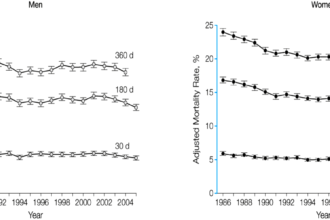This week I was honored to participate in a panel discussion at a Health Affairs briefing in Washington, D.C. on the costly consequences of the diabetes epidemic in United States. The briefing, entitled “Confronting The Growing Diabetes Crisis,” opened up the dialogue about the many opportunities that exist to reverse the toll diabetes takes on the overall health of Americans – and their wallets. I was joined by my colleague Mohammed K. Ali, Assistant Professor at Emory University’s Rollins School of Public Health, and Richard Kahn, PhD, a Professor of Medicine at the University of North Carolina, Chapel Hill, on a panel to discuss the potential of lifestyle changes and weight loss.
The discussion focused on highlighting the need for effective prevention programs across the country – especially when battling a disease as highly prevalent and preventable as diabetes, which an estimated 105 million Americans struggle with in some way. In particular, I focused on my article which appeared in the January issue of Health Affairs, “Building A National Diabetes Prevention And Treatment Strategy: Opportunities Provided By The Affordable Care Act”. I explored diabetes control opportunities under the Affordable Care Act (ACA) by focusing on three strategies: expanding the diabetes prevention program nationally; building care coordination capability by establishing community health teams; and using the Medicare teams to connect public health, prevention, and treatment.
Prevention and coordination being the major underlying themes across all three strategies, the end goal still remains the same – we need to improve the health of incoming Medicare beneficiaries and integrate comprehensive, coordinated care for patients already enrolled if we want to lower health care spending in a sustainable fashion. While this week’s relatively encouraging news about the low rate of increase in health care spending in 2010 underscores the value of prevention, the prevalence of diabetes in Medicare patients has still doubled to 23 percent over the past 20 years and the challenges we face are still very present. In order to be successful, efforts need to be comprehensive in nature and involve both the public and private sectors. I firmly believe that we can make positive changes in the health of millions of Americans and achieve health care cost reduction by investing 10 percent of the Prevention Fund afforded by the ACA to take the Diabetes Prevention Program (DPP) to every state in the U.S. If we can achieve this, we are looking at a potential gross savings of $125 billion over the next 10 years.
Mohammed Ali voiced a similar opinion during his presentation, and reiterated the need to connect people to resources, like lifestyle prevention programs, if we wish to see tremendous collateral benefit in both cost-savings and improved quality of health.
In contrast, Richard Kahn expressed his belief that we need to invest in research that could lead to better, more aggressive treatment for patients already suffering from diabetes. While there is a need for better treatment, it shouldn’t be an “either or” decision. To make his case, Kahn notes that programs like the diabetes prevention program result in initial weight loss but weight is regained over time. This is also true and is well known among researchers in the field. Fact is, after one year, participants realize a 6 percent weight loss—about 4 percent more than placebo. This 6 percent weight loss resulted in substantial reductions in diabetes incidence in the original DPP trial. Indeed, despite the weight gain after a couple of years in both the original trial and the community based programs, the original trial generated a 34 percent reduction in the incidence of diabetes over ten years. Weight loss of 6 or 7 percent also results in reductions in hypertension, hyperlipidemia, and other chronic conditions linked to excess weight. This large reduction according to several tabulations generates a net savings in health care spending. Though Kahn sees the promotion of healthy lifestyle habits and weight loss through public service announcements (PSA) as effective means to combat diabetes, he believes real results will come from investing in research to better understand human physiology so we can reverse the behaviors that lead to diabetes diagnoses.
Despite this difference in opinion, the overriding theme of the day rang clear – we need to identify the root of the problems in our health care system and address the underlying issues that lead to costly chronic diseases like diabetes in order to truly make a measurable and sustainable difference for the betterment of the overall health of our population and our health care system.
It’s clear we need to take advantage of the opportunities that the ACA and the Prevention and Public Health Fund provide to significantly lower health care costs, particularly in Medicare. PFCD welcomes any opportunity to advance the importance of addressing costly chronic diseases, like diabetes, and applauds Health Affairs for providing a platform for productive discussion about diabetes and its effects on our health care system.






